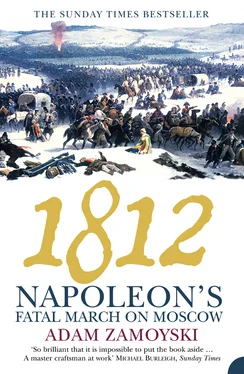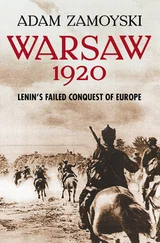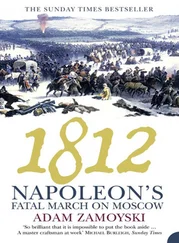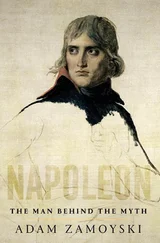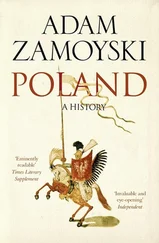Napoleon could have had no inkling of these thoughts, but he was unpleasantly struck by the change that had taken place in Alexander. He found him more self-possessed and annoyingly steadfast, and their interviews were nothing like those of Tilsit – so much so that one day Napoleon grew so heated in the discussion that he tore his hat from his head, threw it on the floor and stamped on it. 24
Alexander had come to Erfürt looking for some advantage or concession with which he could justify his apparent subjection to Napoleon to sceptics at home. But Napoleon was not in a giving mood. He deflected Alexander’s plans for expansion in the direction of Constantinople, as he had come to the conclusion that any division of the Ottoman Empire would benefit Russia far more than France. He allowed Alexander to hang on to Moldavia and Wallachia, and to take Finland from Sweden. He agreed to withdraw French troops from the Grand Duchy of Warsaw and to start evacuating his garrisons in Prussia. But that was the sum total of his concessions. Alexander did not openly challenge the basis of the alliance, and agreed to act out the role of faithful ally with respect to the Austrian threat. ‘The two emperors parted relatively satisfied with their arrangements, but, at bottom, dissatisfied with each other,’ in the words of Caulaincourt. 25
Having, as he thought, secured a degree of support from Alexander, Napoleon turned his attention to Spain, where he went in November. On 4 December he was in Madrid, and from there he set about pacifying the country. Just as he had anticipated, Austria seized the opportunity of his back being turned, and in April 1809 invaded the territory of his Bavarian and Saxon allies.
Napoleon recrossed the Pyrenees and marched to their defence. On 21 May he confronted the Austrian army at Essling. The battle was little short of a defeat for Napoleon, dimming the aura of invincibility that hung about him and giving heart to all his enemies. On 6 July he won the decisive battle of Wagram and dictated a treaty with Austria. But he was far from satisfied. Alexander, on whose assistance he had called as soon as he heard of the Austrian attack, had been slow to respond, and his army had taken an eternity to reach the theatre of operations. When it did so, it began executing a series of military minuets aimed at avoiding the Austrian forces until all was over. It was so successful that it suffered just one casualty during the entire campaign.
Napoleon had taken Alexander for granted, and was now paying the price. He would henceforth have to make more of an effort to bring his ally back on side, and he began to consider what concessions he might make to him. But he had no idea of how far Alexander had strayed from his influence. He certainly did not know that his own Foreign Minister, Talleyrand, had been involved in secret talks with the Tsar at Erfürt. ‘It is up to you to save Europe and you will only achieve this by standing up to Napoleon,’ Talleyrand claimed to have told Alexander. What Talleyrand probably did not know was that the Tsar had already come to see himself as being locked in a personal contest with Napoleon. Instead of acquiring a useful ally, Napoleon had helped to create a formidable rival, one who was already working at supplanting rather than merely defeating him. ‘There is no room for the two of us in Europe,’ Alexander had written to his sister Catherine before setting off for Erfürt; ‘sooner or later, one of us will have to bow out.’ 26
That Alexander could be beginning to think of himself as a counterweight or even an alternative to Napoleon on the international stage is eloquent testimony to what a mess the Emperor of the French had made of his dealings with the other nations of Europe, and with the Germans in particular.
France’s had long been the dominant intellectual and cultural influence on the Continent, and by the end of the eighteenth century progressives and liberals of every nation fed on the fruits of her Enlightenment. The fall of the Bastille on 14 July 1789, followed by the abolition of privilege, the declaration of the Rights of Man, the introduction of representative government and other such measures elicited wild enthusiasm among the educated classes in every corner of Europe. Even moderate liberals saw revolutionary France as the catalyst that would bring about the transformation of the old world into a more equitable, and therefore more civilised and peaceful one.
The horrors of the revolution put many off, and others were offended by France’s high-handed behaviour with regard to areas, such as Holland and Switzerland, caught up in her military struggle against the coalitions lined up against her. But the French were convinced that they were engaged on a mission of progress, bringing happiness to other nations. So, in a more pragmatic way, was Napoleon, who used to say that ‘What is good for the French is good for everyone.’ Liberals everywhere clung to the view that a process of transformation and human regeneration was under way, and that casualties were only to be expected. Those suffering foreign or aristocratic oppression continued to look longingly at the example set by France. With some justification.
The political boundaries criss-crossing much of Europe at the end of the eighteenth century and the constitutional arrangements within them were largely the legacy of medieval attempts at creating a pan-European empire. Germany was broken up into more than three hundred different political units, ruled over by electors, archbishops, abbots, dukes, landgraves, margraves, city councils, counts and imperial knights. What is now Belgium belonged to the Habsburgs and was ruled from Vienna; Italy was divided up into eleven states, most of them ruled by Austrian Habsburgs or French and Spanish Bourbons; the Holy Roman Empire of the German Nation included Czechs, Magyars and half a dozen other nationalities; and Poland was cut up into three and ruled from Berlin, Vienna and St Petersburg.
Every time a French army passed through one of these areas, it disturbed a venerable clutter of archaic law and regulation, of privilege and prerogative, of rights and duties, releasing or awakening a variety of pent-up or dormant aspirations in the process. And every time France annexed a territory she reorganised it along the lines of French Enlightenment thought. Rulers were dethroned, ecclesiastical institutions were abrogated, ghettos were opened, guild rights, caste privileges and other restrictions were abolished, and serfs and slaves were freed. Although this was often accompanied by cynical exploitation of the territory in the French cause and shameless looting, the net effect was nevertheless a positive one in the liberal view. As a result, significant sections, and in some cases the majority, of the politically aware populations of such countries as Belgium, the Netherlands, Switzerland, Italy, Poland and even Spain ranged themselves in the camp of France against those seeking to restore the ancien régime , even if they resented French rule and decried the depredations of French troops. Nowhere more so than in Germany.
The Holy Roman Empire, founded by Charlemagne a thousand years before, included almost all the lands inhabited by German-speaking people, but it did not bring them together or represent them. The absurd division of the territory into hundreds of political units inhibited cultural and economic, as well as political life. German eighteenth-century thought was cosmopolitan rather than nationalist, but most educated Germans nonetheless longed for a more coherent homeland.
Between 1801 and 1806, following his victories over Austria and Prussia, Napoleon thoroughly transformed the political, social and economic climate throughout the German lands. He secularised ecclesiastical states and abolished the status of imperial cities, swept away anachronistic institutions and residues of gothic rights, in effect dismantling the Empire and emancipating large sections of the population in the process. In 1806, after his defeat of the Emperor Francis at Ulm and Austerlitz, he forced him to abdicate and to dissolve the Holy Roman Empire itself. In a process known as ‘mediatisation’, hundreds of tiny sovereignties were swept away as imperial counts and knights lost their lands, which were fused into thirty-six states of varying size, bound together in the Confederation of the Rhine. With them went all the nonsensical borders and petty restrictions that had made life so difficult. In their place came institutions moulded on the French pattern.
Читать дальше
